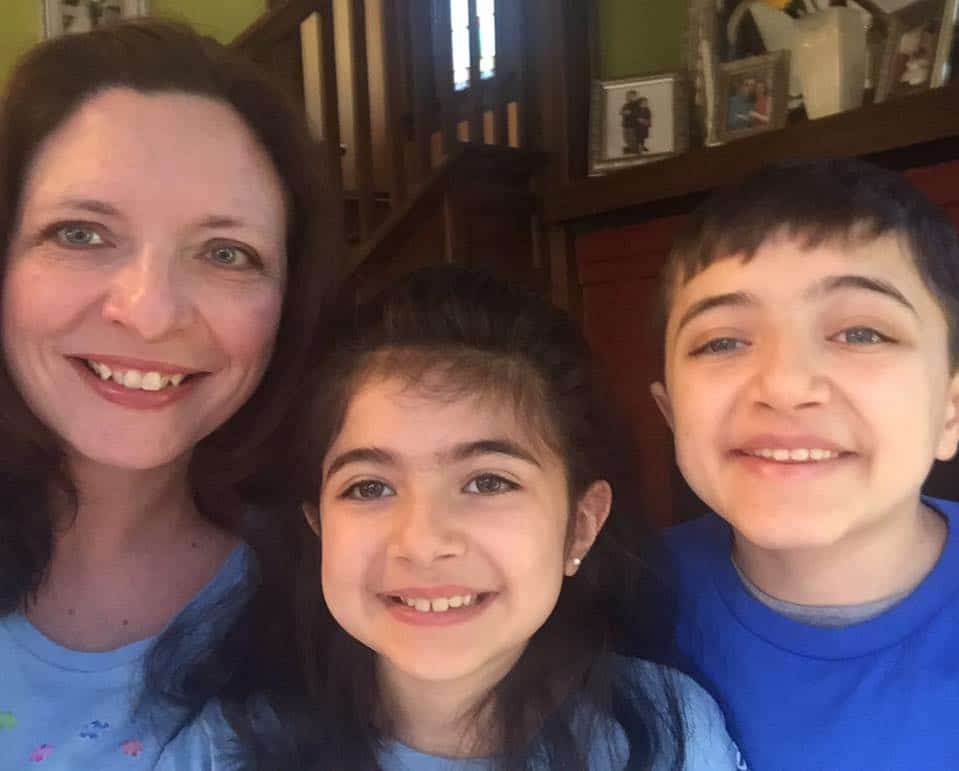Autism Awareness, #Ownvoices and Judgment-free Zones
- By: admin | Date: Apr 03 2017

Yesterday was World Autism Awareness Day, but my kids and I are still wearing our blue shirts today to celebrate it.
One of my goals as an Autism Mom is to talk about my son’s diagnosis as much as possible. I’ve never been one to shy away from labels. They only have as much power as you give them. If I talk as much about my son as possible, as much about Autism as possible, it can only make others come to understand him and the disorder better.
That’s one of the many reasons I’m so excited about the #ownvoices and #diversebooks movement. We need the perspectives of every race, religion, disability and sexual identity represented. The more voices entering the dialogue, the better.
Still, I have to admit that sometimes I find myself a little intimidated to post about these subjects on social media. I wanted to tweet an #MSWL recently that expressed my desire to represent books featuring characters with disabilities. Even as the mother of a child with a disability, I wasn’t sure of the most sensitive way to word it. I was afraid of offending followers, even though my intention was actually to see their voices fairly and authentically represented. Should I ask for “differently abled characters”? “Disabled characters”? “Characters with disabilities”? I’d seen tweets where any one of those phrases had been found offensive.
In this current divisive political climate, all of us are feeling sensitive. Representing diversity is so important, but unfortunately I think we can be quick to judge, instead of educate. There’s a lot of finger-pointing and internet witch hunts that are usually started by a few, but then spread by anyone who will react. Books are labeled racist by people who haven’t read them. Movies are branded homophobic before a single viewing. We all have the knee-jerk reaction of wanting to fight, but sometimes that can just perpetuate the problem and create more division.
We certainly don’t live in a Pollyanna world. I’m well acquainted with internet trolls and hate-filled people, and they aren’t worthy of any response, let alone the time it just took me to type this sentence. There are, however, plenty of people in this world that say the wrong thing, do the wrong thing, but have good intentions.
That’s why I love books like R. J. Palacio’s WONDER and Cammie McGovern’s A STEP TOWARD FALLING. Not only do these books give voice to characters with disabilities, but also to those people that don’t always say and do the right thing when relating to those characters. Most of those words and actions are born of fear and ignorance. Even the bullies and silent bystanders can be redeemable if they learn from their mistakes.
To be honest, I’m worried that these rushes to judgment on social media will actually have a negative effect on the #weneeddiversebooks movement and will silence voices that are too intimidated to enter the arena. Even voices which are sensitive, authentic and worthy. For my part, I’m just going to keep looking for #ownvoices from every perspective. I’m going to take every opportunity I get to speak about my son and Autism. But I’m also going to keep working on my own judgment-free zone, and make sure I stop and listen to other perspectives. Because ultimately, the goal is for all of us to be able to relate to one another better.

Great post, but the “blue shirts” part stuck out to me – the autistic community doesn’t support Autism Speaks or the Light It Up Blue movement, instead we support #REDinstead or Light It Up Gold, both movements created by #actuallyautistic people. Thank you for your support!
Thanks so much for commenting Kathryn. While I’m aware of the issues surrounding Autism Speaks and don’t specifically support them, I know that many associate blue with autism awareness in general. That said, I’d never heard about #REDinstead or Light It Up Gold, so I’ll certainly look into those movements. I appreciate the info! Thanks again!
It’s so hard to know what is the right thing to do, down to the last detail, but you’re doing what you can. You’re doing all that you can, and I admire you for that.
Wonderful post. I loved what you said about people with good intentions sometimes saying or doing the wrong thing.
My sons are autistic. That sentence was incredibly hard for me to write. But I feel comfortable saying I have two grown sons with autism. Here’s the reason: when my first son was diagnosed, I was told to use that second term – to put the person before the diagnosis. It made sense to me, so that’s what I did. A few years ago, I learned that a lot of people in the autism community prefer autistic – since they consider autism a part of their identity. That makes perfect sense too. My point is, even though I have two grown sons with autism (i.e. I’ve been on this journey a good long while now) the language hasn’t gotten any easier for me. And my sons are both nonverbal, so I can’t ask them what they prefer. I love my children. And I respect them. I hope whenever I talk about them or write about them – that’s what people will see.
In Australia blue is the colour for autism – endorsed by the state and national Autism Associations (I googled #REDinstead and Light It Up Gold for Australian links and couldn’t find any). Mind you, in Australia red shirts have a different (and well known) meaning which might be why they stick with blue.
Lovely family photo, Kim =)